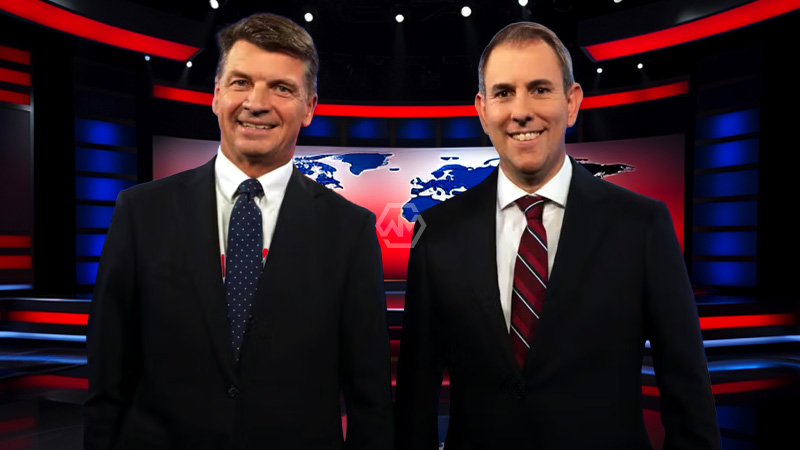- Jim Chalmers accused the Coalition of planning undisclosed budget cuts to fund nuclear energy.
- Angus Taylor claimed Australians are worse off and criticized Labor’s economic performance.
- The debate focused on cost of living, budget priorities, and economic credibility.
In the first treasurers’ debate of the campaign, Jim Chalmers positioned Labor as the party of responsible economic management amidst global uncertainty.
Angus Taylor, on the other hand, claimed Australians are facing higher living costs and economic hardship due to Labor’s policies. He avoided detailing where the Coalition would find funding for its nuclear energy plans. However, Taylor guaranteed spending on health and education, emphasizing his business background as a qualification for the treasurer role.
Cuts or Credibility? Labor and Coalition Clash Over Future Economic Plans
Jim Chalmers opened the debate by highlighting Labor’s steady economic approach during uncertain global times. He pointed to three years of fiscal improvement. Chalmers also warned against a return to Coalition policies he described as chaotic and regressive.
Angus Taylor claimed Labor had overseen a period of economic decline, blaming the government for rising living costs. He accused Chalmers of dodging accountability, especially over the unfulfilled energy bill reduction promise made during the last election.
A major flashpoint was Labor’s claim that the Coalition would need to make undisclosed cuts to fund its nuclear energy proposal. Chalmers repeatedly pressed Taylor for specifics, which Taylor did not provide. This called into question the transparency of the Coalition’s budget strategy.
In contrast, Taylor promoted his experience in private enterprise. He argued that his background better positioned him to lead Australia through economic recovery. Taylor focused on reducing “wasteful spending” and delivering relief through policies like the fuel excise cut.
The debate set the tone for a high-stakes economic battle in the election campaign. Each side is staking its claim on credibility, stability, and trust in uncertain times.
“Australians can’t afford another three years like the last three.”



